Swiss bastion of traditional jazz turns 40
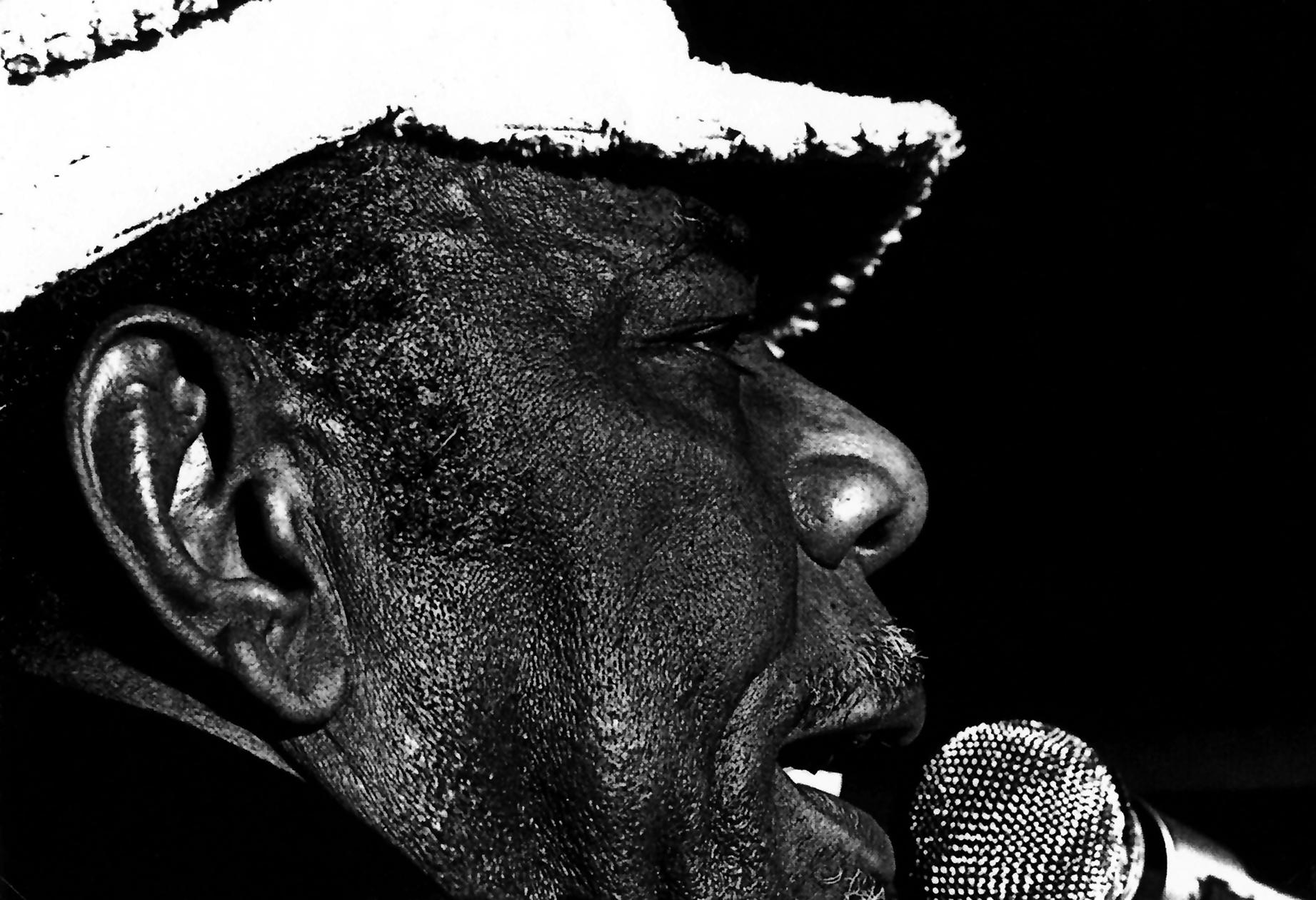
A new, tradition-bound jazz festival was launched in the Swiss capital, Bern, 40 years ago, adding to the popular jazz and avant-garde festivals on offer at the Montreux and Willisau.
The International Jazz Festival Bern’s motto of “40 years hard swinging” harks to founder Hans Zurbrügg’s commitment to a purist form of jazz, shared by icons such as famous jazz trumpeter Wynton Marsalis.
Marsalis, a superstar who can easily fill large venues, still calls Zurbrügg now and then to ask if he can play for a few days at his small jazz club in Bern. Kindred spirits, they believe in a jazz rooted in tradition, eschewing electronic, rock, free jazz and crossover experiments.
swissinfo.ch met up with the Swiss hotel entrepreneur and festival founder to talk jazz.
swissinfo.ch: This year the festival is being held for the 40th time. What was your motivation for founding the festival?
Hans Zurbrügg: A few years earlier all the jazz aces were living in Nice and I got to know them personally. In Switzerland at that time we only had the Montreux Jazz Festival. My intention was to introduce the swinging, traditional jazz to a wider audience in Bern.
Claude Nobs had implemented its own concept in Montreux, and Niklaus Troxler was trying to put the avant-garde jazz festival in Willisau on a firm footing. We all got together and agreed jointly on dates.
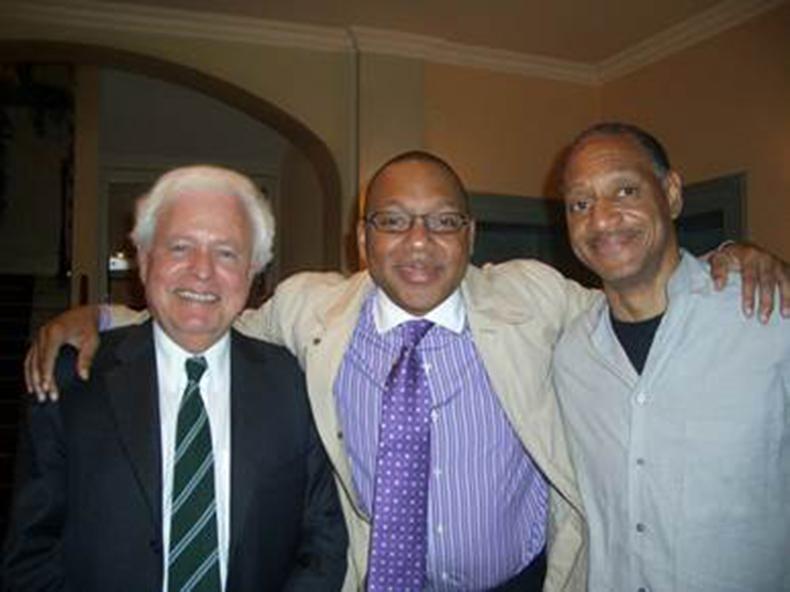
swissinfo.ch: Summer was and still is the main season for the largest European music festivals. Bern is held in spring, however, when the US stars aren’t touring throughout Europe. Did that mean you had to be more active in convincing the musicians and flying them to Switzerland?
H.Z.: When we set the date, I didn’t know that, but I became aware of the situation pretty quickly and saw it as an opportunity.
An example: The great trumpeter Clark Terry had lived in Bern some years ago. After an operation he had to stay in hospital for a while. As a creative person with a lot of initiative this was an excruciating punishment for him. I visited him several times in hospital and he was very depressed. Then I told him that we would do something. Put a band together, with him having complete freedom to do whatever he wanted with it. By the next day he had already written down the names of the musicians. That was the birth of the Ellington Spacemen.
Many other musicians had also put together bands just for Bern, and the result was tremendous creativity. It meant what Bern was offering differed from practically all of the other festivals. Bern took off.
swissinfo.ch: Benny Goodman, Louis Armstrong, Oscar Peterson, Ella Fitzgerald – all the great stars of traditional jazz are dead. The younger musicians are less well-known to a wider audience. Was that one of the reasons why the 2003 festival was moved from a large hall to a club?
H.Z.: That’s exactly right. At the same time, jazz had its beginnings in clubs, and that’s also where its different styles emerged. I said that jazz should go back to its roots. Interestingly enough, today most of the genuine jazz festivals use clubs as their venues.
Another thing is that the smaller distances in a club lead to a completely different experience for both audiences and musicians, because above all, jazz is a music of emotions and not of perfect techniques.
swissinfo.ch: You talk about “real jazz festivals” and thereby exclude all festivals that have a little jazz but also a lot of jazz-related music or even music completely different to jazz. Jazz is also a label that has become fashionable, a buzzword.
H.Z.: That’s a real pity and needs to change. Jazz has a very important role as a cultural asset. At Bern we present only musicians who are committed to this heritage, and by extension to the tradition of jazz. But that doesn’t mean that they simply reproduce the tradition. At other, so-called jazz festivals it’s only the economic aspect that’s decisive. The hall must be filled in order to satisfy the sponsors.
swissinfo.ch: Let’s take the great jazz pianist Oscar Peterson, who was deeply rooted in tradition, as an example. Who is on the current scene is similar to Peterson – Keith Jarrett, Herbie Hancock?
H.Z.: No. Now in the United States, in the orbit of Wynton Marsalis’s Lincoln Center, there is a young generation that has been brought back to the roots of jazz. Benny Green – at 51 he is no longer the youngest – is an Oscar Peterson-influenced pianist, but there are also young musicians such as Aaron Diehl, who will play in this year’s festival.
There is quite a lot of young talent – and I do not count Herbie Hancock among them. Hancock and Chick Corea have their own style, but there are other young pianists who are closer in spirit to the tradition.
swissinfo.ch: Wynton Marsalis is strongly committed to tradition, but on the other hand weren’t the musicians whom he references innovators in their time? Do you see jazz as a type of music that is already fully developed? Or can it also develop in previously unknown directions?
H.Z.: I think the history of jazz as such has been written. But that doesn’t mean that today’s jazz musicians cannot fulfil their true selves artistically and develop their own style, their own personality.
I believe that everything that is humanly possible has already been tried. All possible music cultures in the world were once been mixed with jazz.
Oscar Peterson put it succinctly, saying that some folk music is partly compatible with jazz, but not all.
1976: founds the International Jazz Festival Bern
1992: Zurbrügg and his wife, Marianne Gauer, open the Hotel Innere Enge in Bern and the Marians Jazz Room
2013: receives the Beacons in Jazz Award from The New School, a university in New York City devoted to the arts
Translated from German by Kathleen Peters

In compliance with the JTI standards
More: SWI swissinfo.ch certified by the Journalism Trust Initiative
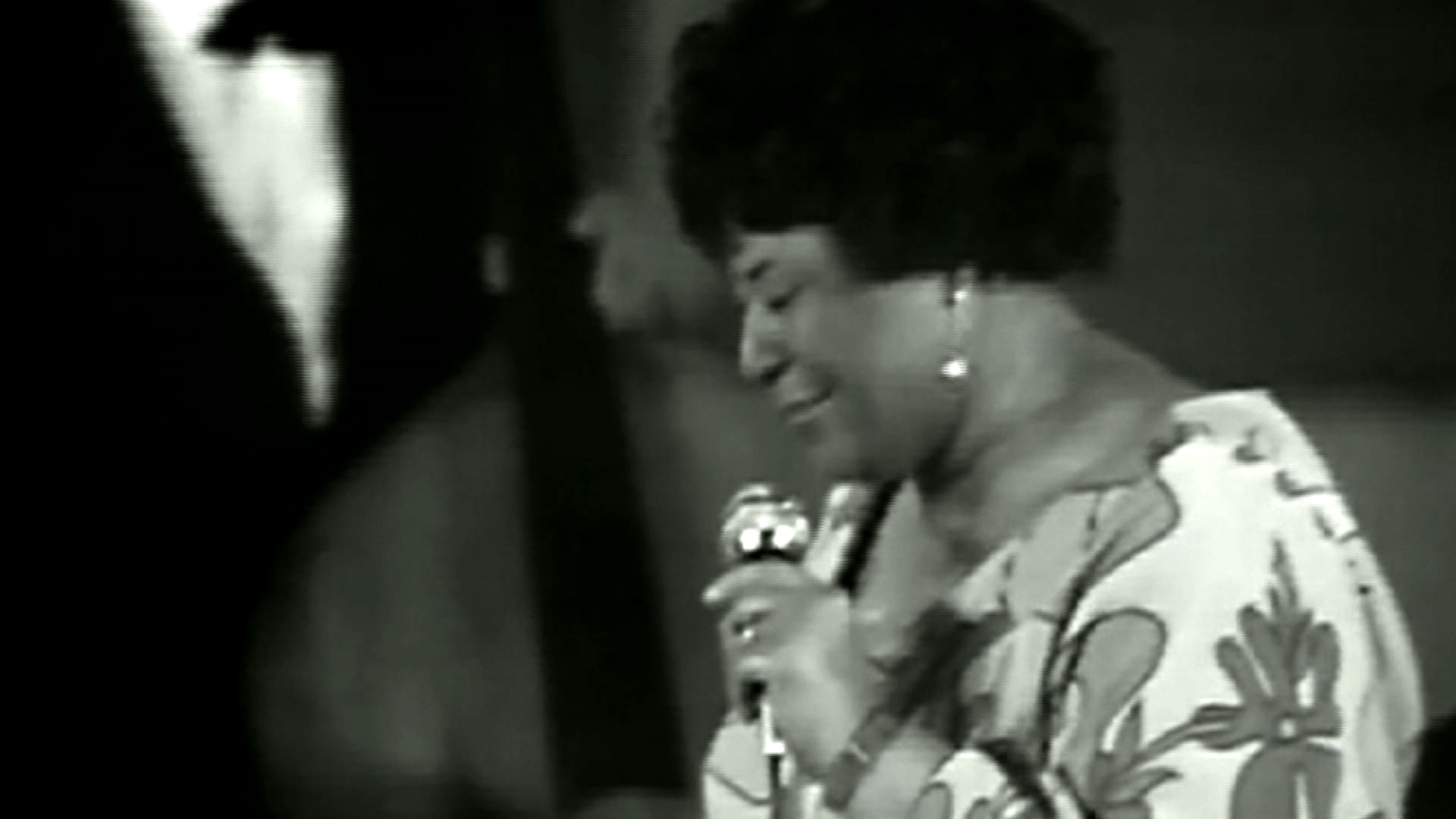
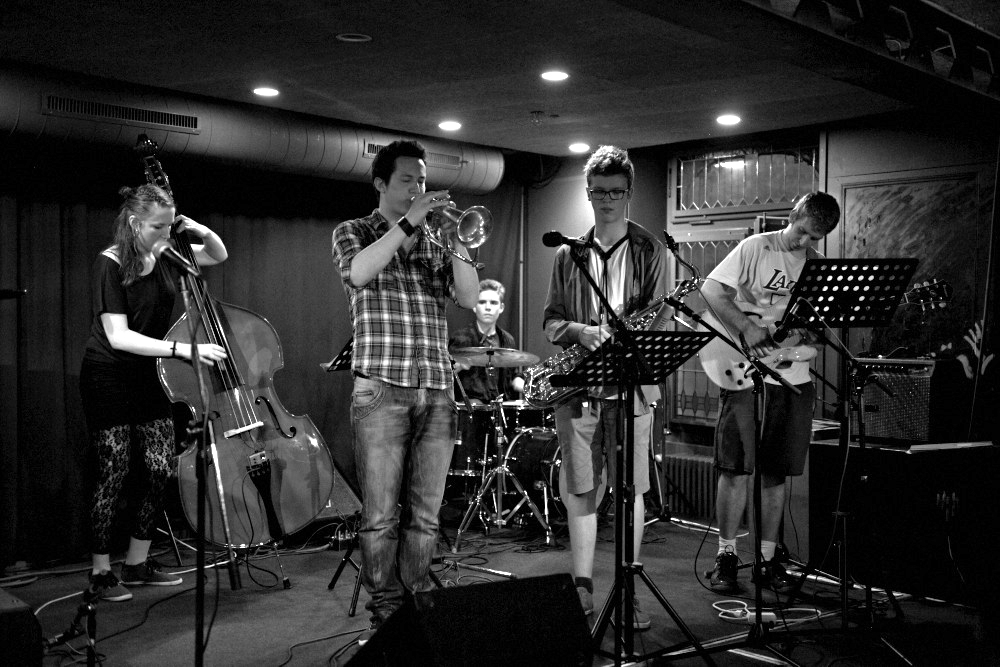
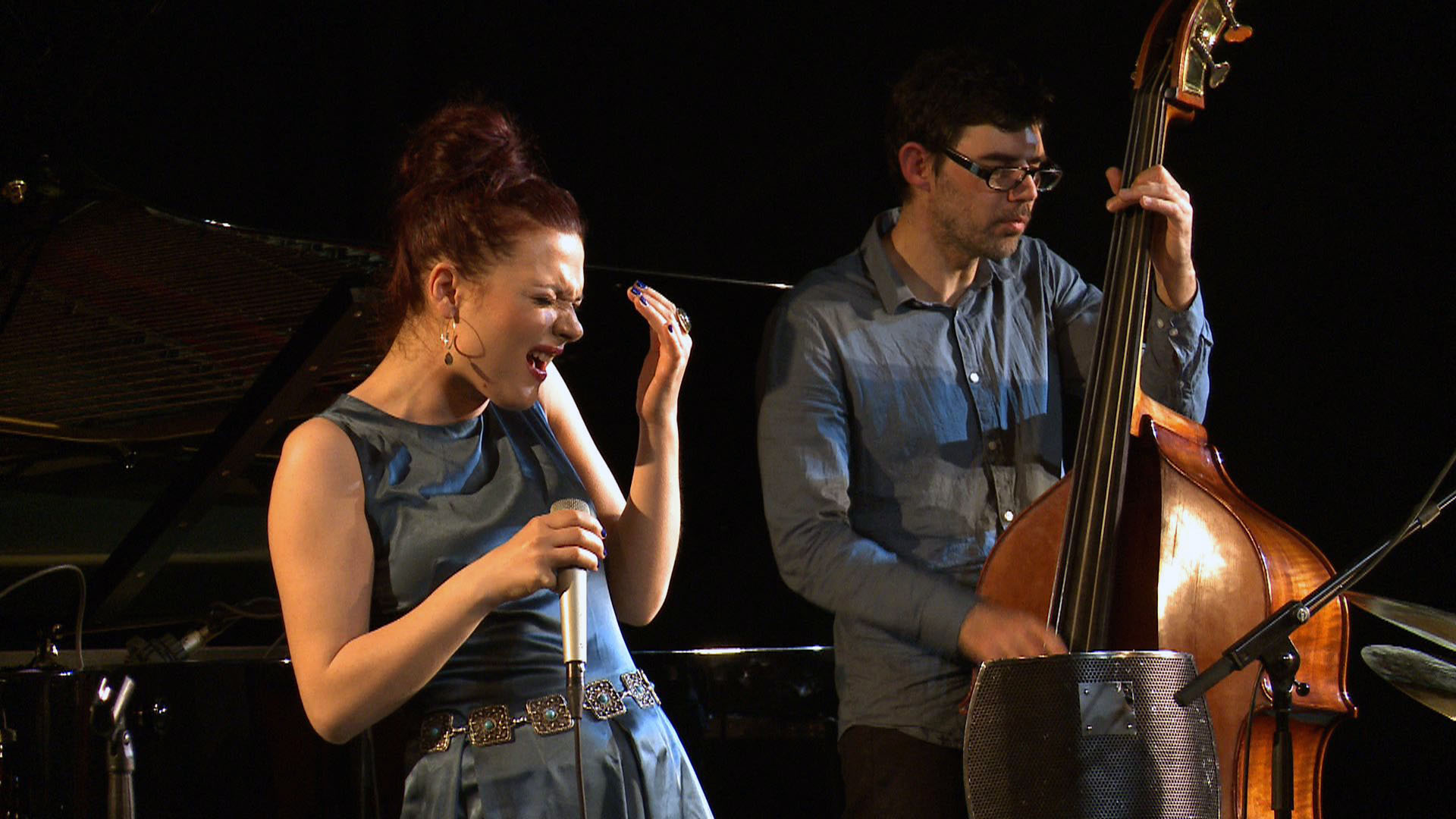
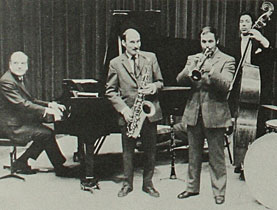
You can find an overview of ongoing debates with our journalists here. Please join us!
If you want to start a conversation about a topic raised in this article or want to report factual errors, email us at english@swissinfo.ch.